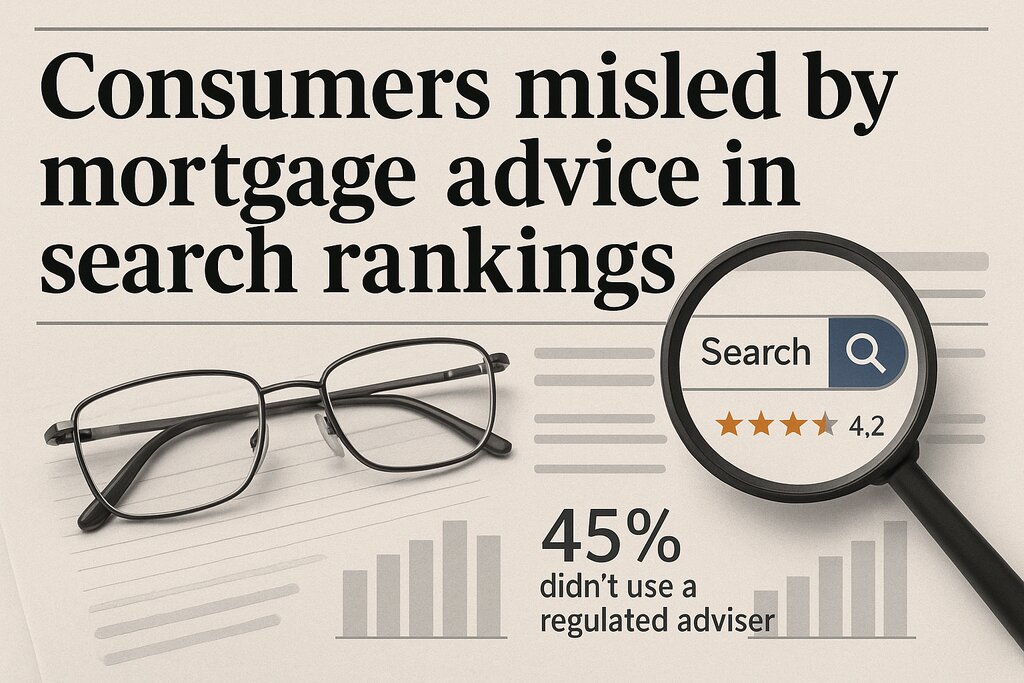A new study by mortgage brokerage Boon Brokers has revealed widespread consumer misunderstanding about the credibility of online mortgage advice, with search engine rankings and customer reviews often mistaken for indicators of regulatory status or professional qualification.
According to the June 2025 research, conducted by TLF Research among 1,000 UK mortgage holders, 81% of consumers now turn to search engines for mortgage guidance.
Yet 74% admit they do not always check if the advice they find comes from a qualified or regulated source and 65% say Financial Conduct Authority (FCA) registration is not something they actively consider when evaluating trust.
The findings point to a fundamental shift in how consumers access financial information – and a growing vulnerability to misinformation.
VISIBILITY IS NOT CREDIBILITY
While convenience has become the main driver of behaviour, Boon Brokers warns that visibility is increasingly mistaken for credibility. One in three respondents said they trusted mortgage advice simply because it appeared near the top of a search results page, with 43% unaware that search rankings are driven by SEO, not subject-matter expertise.
This growing reliance on search engines has also introduced a new hierarchy of trust. The study found that 41% of consumers place greater faith in online customer reviews than in professional credentials.
Among younger respondents, that figure was even higher, with over 40% of 18–34-year-olds saying they trusted online advice based on reviews, while just 15–17% considered brand reputation or regulatory standing.
ONLINE TRUST
The research also identified demographic differences in online trust. Men were nearly twice as likely as women (40% vs 24%) to use search engines for mortgage advice, while older homeowners were 60% more likely than younger ones to incorrectly assume that top-ranked search results are automatically regulated.
Perhaps most concerning, 45% of respondents admitted they had not used a regulated adviser at all when seeking mortgage advice – exposing them to potentially unregulated and unaccountable guidance during one of the most significant financial decisions of their lives.
STRICTER DUE DILIGENCE
Boon Brokers is calling for greater public awareness around how online information is curated and urging consumers to adopt stricter due diligence.
It recommends checking whether a broker is FCA-authorised, cross-referencing advice from multiple reputable sources, and being wary of overly persuasive content designed to perform well in search rather than protect financial interests.
As AI-driven content strategies and search optimisation continue to shape the digital mortgage landscape, the study suggests a widening gulf between visibility and verified expertise – with potentially serious long-term consequences for consumers.
CRITICAL LENS NEEDED

Gerard Boon, Managing Director at Boon Brokers, says: “While there is nothing inherently malicious in marketing strategies that centre their value around SEO structure, it’s important for consumers to understand that the highest-ranking advice is not necessarily the most accurate, it’s simply the most optimised.
“As we all live in the environment of the digital age, the responsibility falls on consumers to adopt a more critical lens. Trust should no longer default to whoever shouts the loudest online or types the most, it must be built through accountability and reflect reputable and professional standards.”











